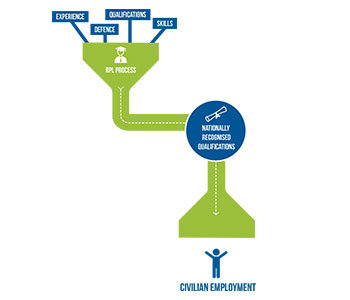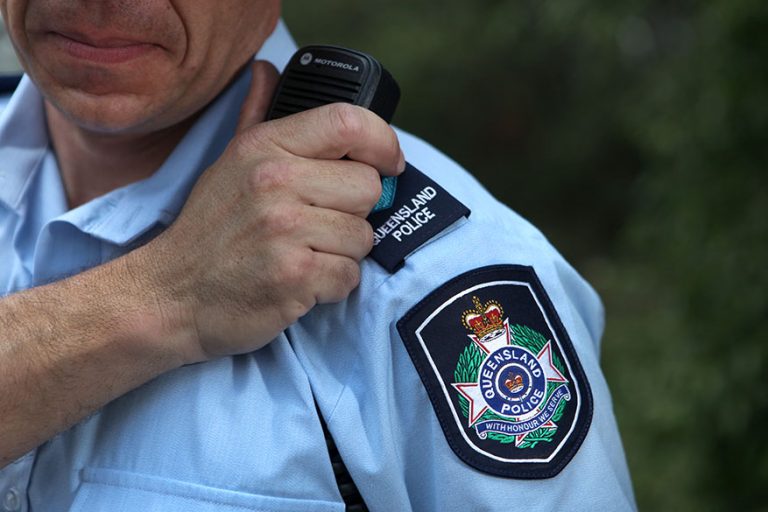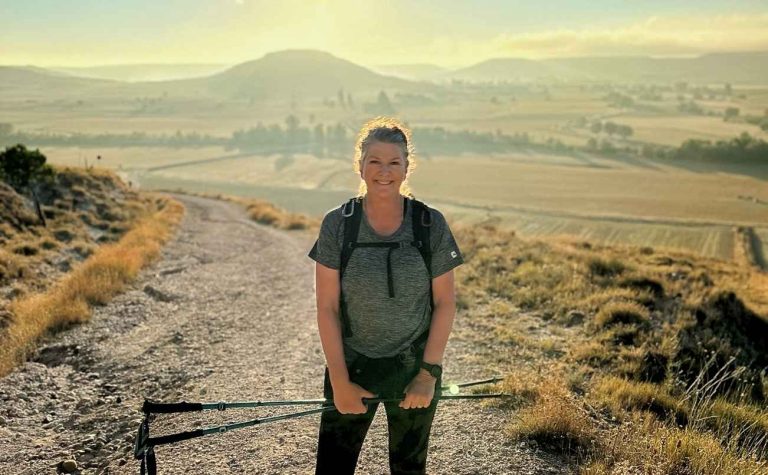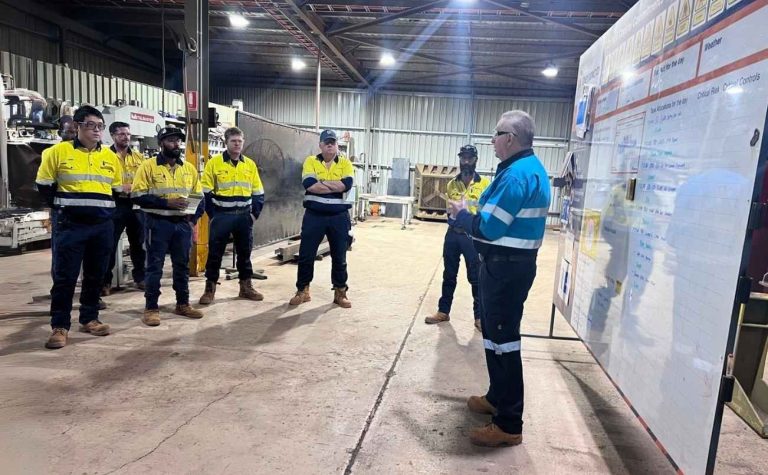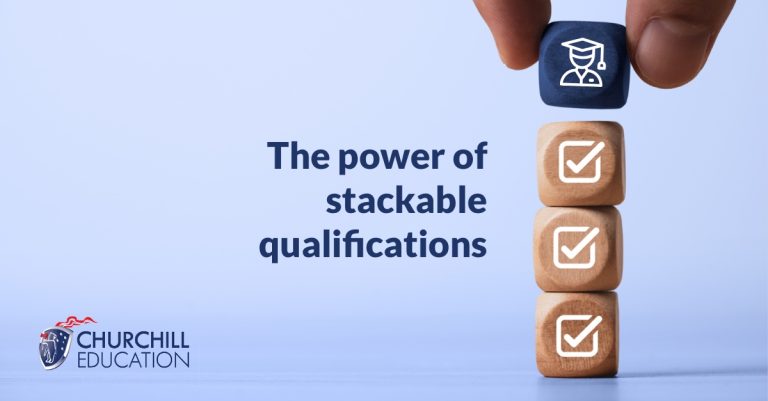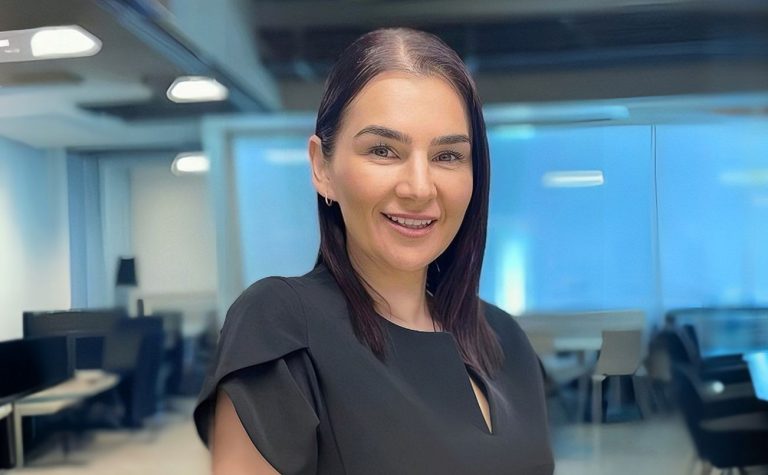Recognition of Prior Learning, (otherwise referred to as RPL or ‘Skills Recognition’) is a term most Defence Force personnel have encountered before. In fact, you may have even attempted to go through the RPL process yourself at some point in your career. If you did, the chances are you didn’t complete it. A lot of people don’t, because it can be pretty difficult to try and navigate on your own.
Recognition of Prior Learning, (otherwise referred to as RPL or ‘Skills Recognition’) is a term most Defence Force personnel have encountered before. In fact, you may have even attempted to go through the RPL process yourself at some point in your career. If you did, the chances are you didn’t complete it. A lot of people don’t, because it can be pretty difficult to try and navigate on your own. There’s a lot of misinformation out there that makes it confusing and off-putting.
Find out what you’re eligible for
In this blog we will look at the Top 6 Myths about RPL for Defence that may be making you dismiss it as an option, and blow them out of the water.
 MYTH 1: I will only qualify if I’ve been in the ADF for a long time
MYTH 1: I will only qualify if I’ve been in the ADF for a long time
If you haven’t served for very long but are considering transitioning from the Defence Forces to a civilian lifestyle, you may think (or you may have been told) that your experience does not translate to any worthwhile qualification.
In fact, it’s entirely possible that it does.
Even a Private with as little as six months of service time could map their experience to qualifications to a BSB30715 Certificate III or BSB41415 Certificate IV in Work Health and Safety. And that’s no small thing to have, as these quals are a prerequisite requirement for many employers including Corrective Services and Emergency Services. And, personnel who have left Defence anytime within the last five years can still be eligible for RPL based on that experience.
MYTH 2: It’s too hard to understand
Calculating and mapping Recognition of Prior Learning/Skills Recognition takes into account two things: previous qualifications that you have obtained and on-the-job experience. Quals that you gain in the Defence Forces do not exactly translate to those externally. But when your experience is taken into account, you could be eligible for a whole variety of nationally recognised qualifications. It is a holistic approach that takes a rounded look at what you have done in your life prior to your application. And that’s where the ‘it’s too hard’ myth comes into play.
How does someone inexperienced in the nuances of training and compliance know what detail is required for the process?
What about which sort of training and on- the- job learning that might be taken into account?
How do you find out exactly what you need to provide to prove your knowledge and skills?
If you get it wrong, you may miss out on qualifications that you are entitled to.
The bottom line is that it can be too hard, but it doesn’t have to be. And that’s where experts come in. In the same way you get a mechanic to do a service on your car because they have in-depth knowledge, we recommend that you get an RPL expert to guide you through the process. We also have Subject Area experts that they collaborate with, to make sure your specific situation is understood. More than just guides, Churchill Education RPL experts will pretty much do it all for you.
All that’s required of you is to provide a few documents (easily obtainable) and let those in the know do their thing. We do the legwork, you get the quals.
MYTH 3: Qualifications through RPL are not worth as much as qualifications obtained through study
There’s a common misconception that Recognition of Prior Learning/Skills Recognition is not the same as study or that it somehow degrades any qualification that you are awarded. This can make former ADF personnel lack confidence when going for civilian jobs, as they feel that their resume won’t stand up to competition.
This is incorrect for several reasons.
Firstly, under the Australian Quality Training Framework, competencies may be attained in a number of ways. This includes any combination of formal or informal training and education, work experience or general life experience.
Secondly, if you receive an RPL qualification through a reputable RTO, they can in fact be held in higher esteem than qualifications that are not Nationally Recognised, or those awarded by a training company that is not regulated. Who would you trust more? A doctor with twenty years of experience or one straight out of med school? Experience counts. And that’s why there is RPL. To recognise that the on- the- job training and experience you’ve built up is worth a lot.
Churchill Education’s RPL process takes into account all of your skills and knowledge and provides the best case scenario for your situation. If you can be awarded a nationally accredited qualification (because you deserve it) without spending hours in a classroom, why wouldn’t you?
MYTH 4: It’s a long, painful process and I won’t get much anyway
If you are attempting to undertake the RPL process yourself, filling out endless forms and trying to wade your way through it all, it may well be a long arduous process!
Using experts in RPL/Skills Recognition for ADF personnel will make a massive difference. Churchill Education’s specialised Defence RPL Assessment Team will make the process as easy as possible for an applicant.
Find out what you’re eligible for
When you look back on your career, you may think it seems impossible to share with someone else everything you’ve learnt and all the skills you’ve developed. But the information you need to provide to an assessor about your career, your knowledge and your skills is very flexible. You don’t need to produce detailed documents necessarily, evidence of your work experience can include the following:
- samples, photographs or videos of your work
- a practical on-the-job assessment
- certificates and qualifications from previous study
- a simulation of a work activity
- letters of validation from your employer and/or clients
- your performance management reports
- copies of documents you have completed at work
- a portfolio of workplace documents, for example policies, procedures or projects that you work with
- a conversation with the assessor, which can be over the telephone.
So, whilst there is some effort required to answer questions about your career, the assessor will take responsibility for guiding you through it, and telling you exactly what they need from you. Once you have provided that information, they will do the mapping themselves, and present you with your qualifications at the end of it. As for what you’ll get, most students are pleasantly surprised at how many qualifications they receive. Stay tuned for our exclusive Progression Guides, which will show what RPL candidates from different ranks receive through the process with Churchill Education.
MYTH 5: I will probably have to do more study, or will be conned into it by the RTO I work with
We can’t speak for other training organisations, except to say that if an organization you approach pushes further training rather than RPL, alarm bells should go off! It’s about recognising your quals, skills, and experience and helping you map that towards standards external to the ADF. It’s not about trying to force you into more training.
Churchill Education’s experienced staff will look at your situation and recommend a qualification that fits your skills and what you want to achieve. Should the assessor identify any training gaps, we will be transparent about that and provide you with flexible training options. In the majority of cases, transitioning personnel have required no further study to be awarded qualifications.
To get the ball rolling with your own RPL/Skills Recognition process, contact Churchill Education on 1300 793 002 for your free assessment.
Quick facts:
- A mere 6 months of ADF service can be enough to receive a qualification via RPL.
- Australian Quality Training Framework recognises prior learning, current competency, and skills.
- A knowledgeable assessor will make the process easy. If there is information required about on the job experience, the right questions will be asked to minimise time wastage.
- Evidence of your work experience can be flexible, including photos, samples of work and most importantly a personal/phone interview.
- Most experienced ADF personnel receive qualifications through RPL with Churchill Education without any further study.

